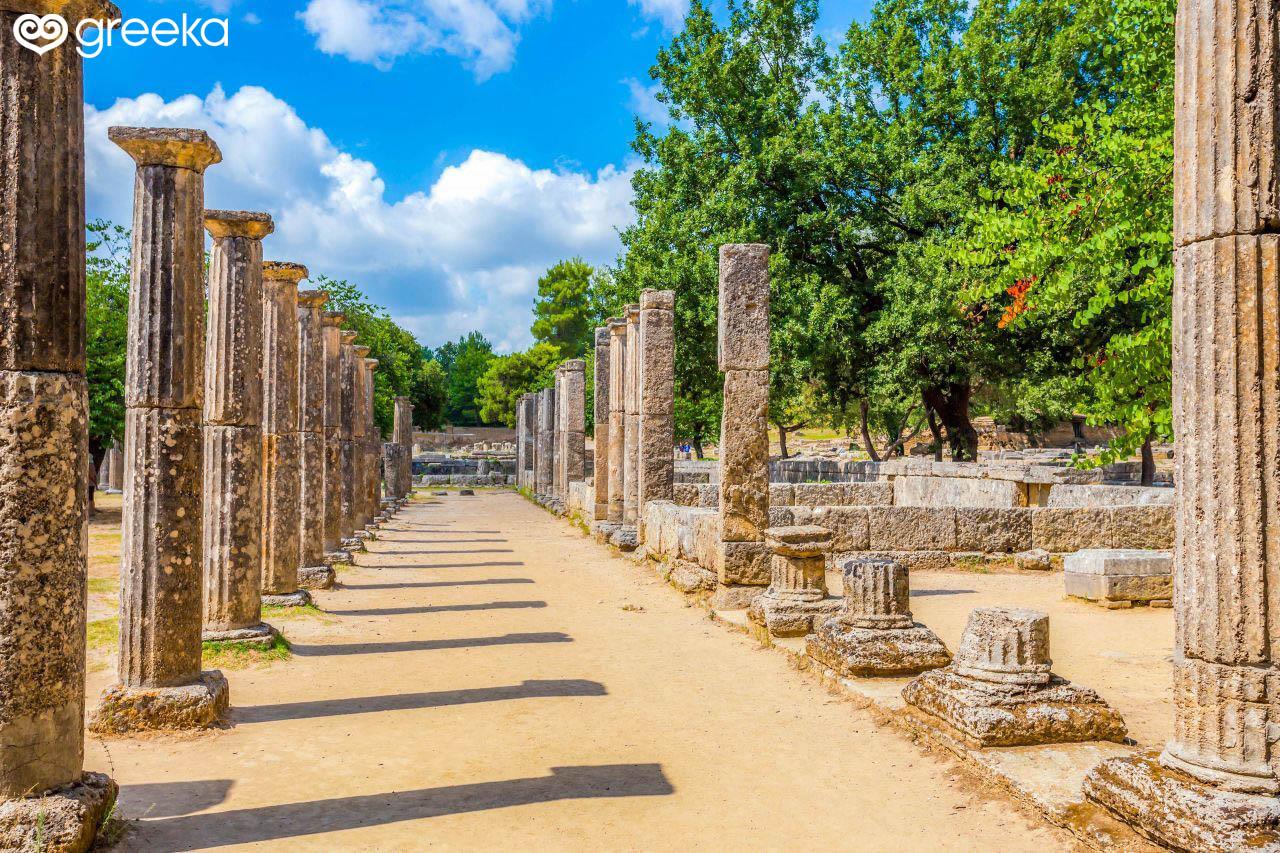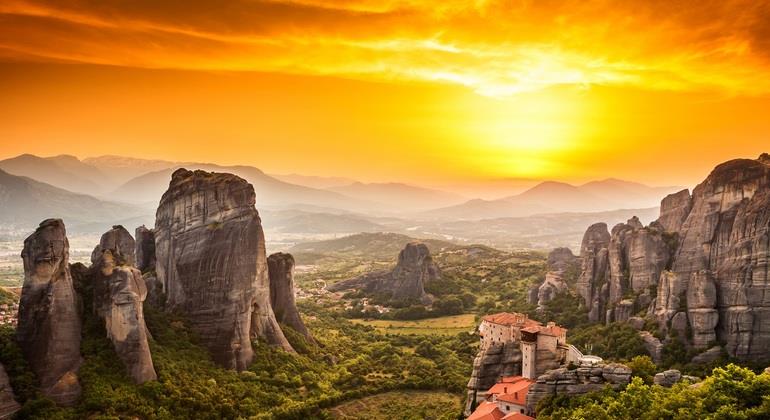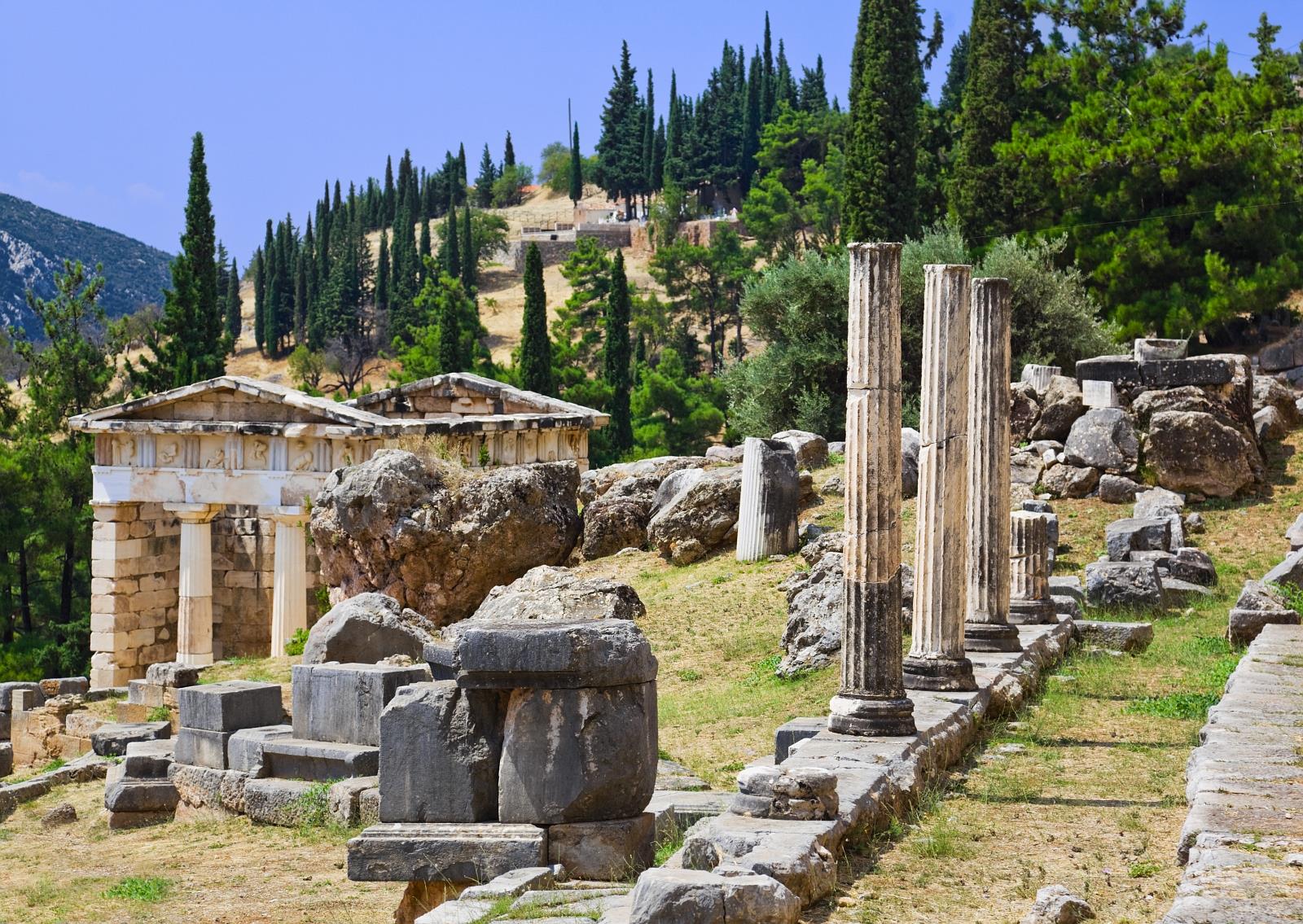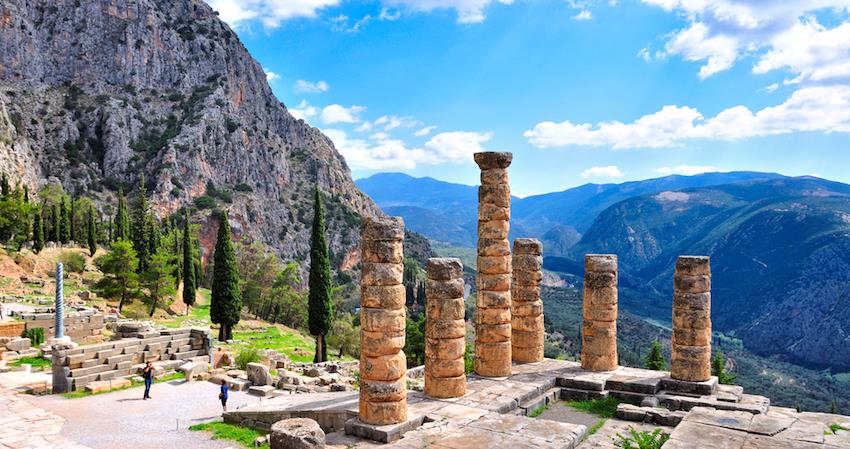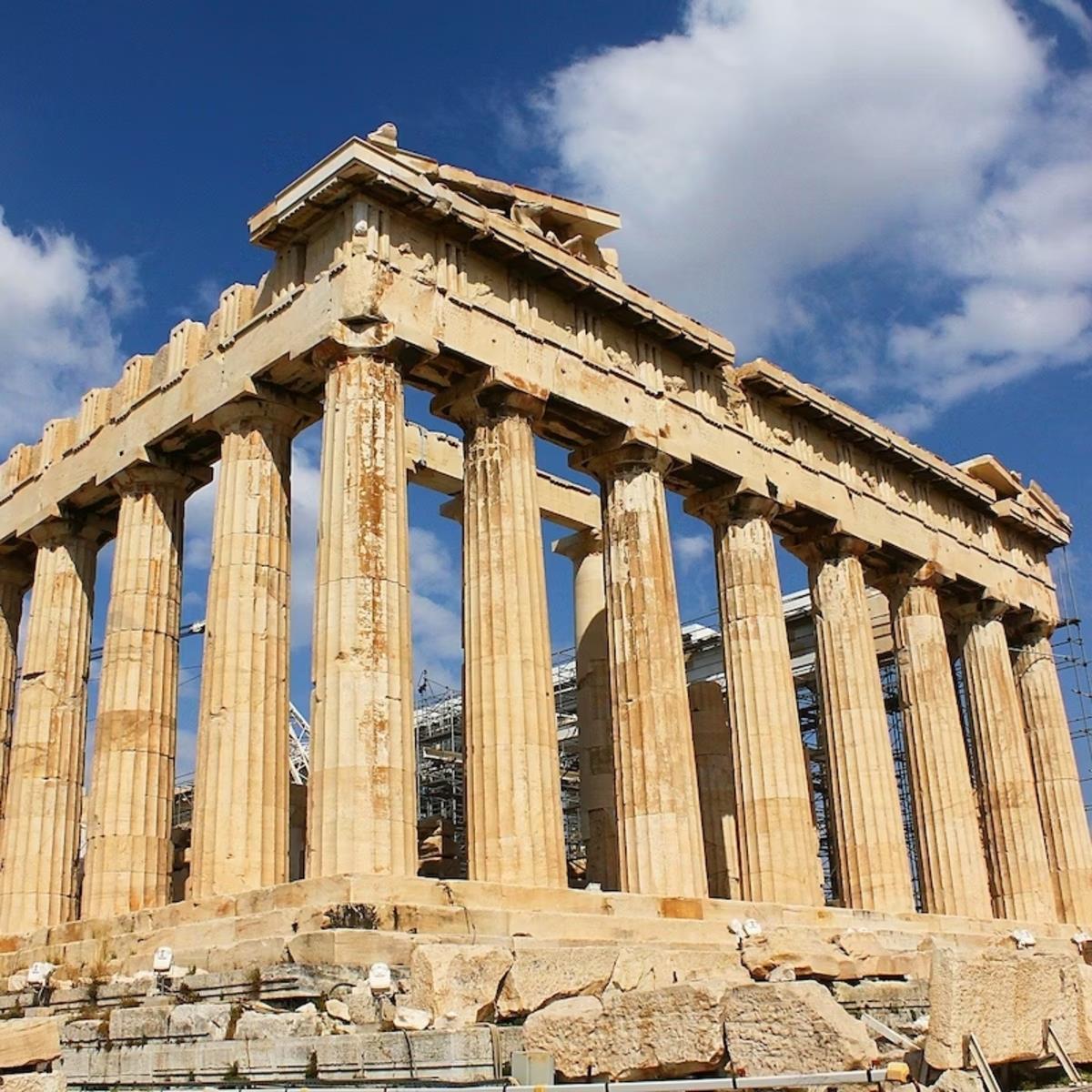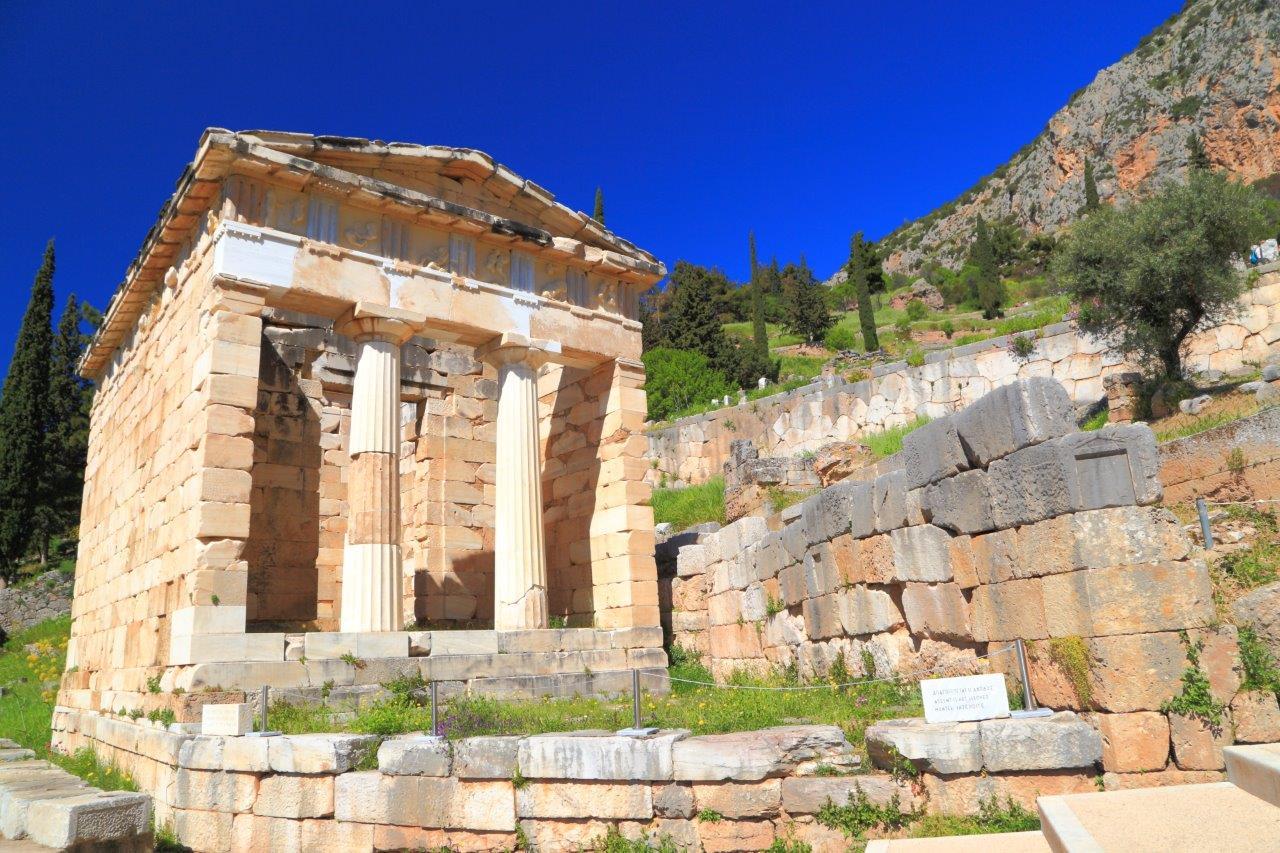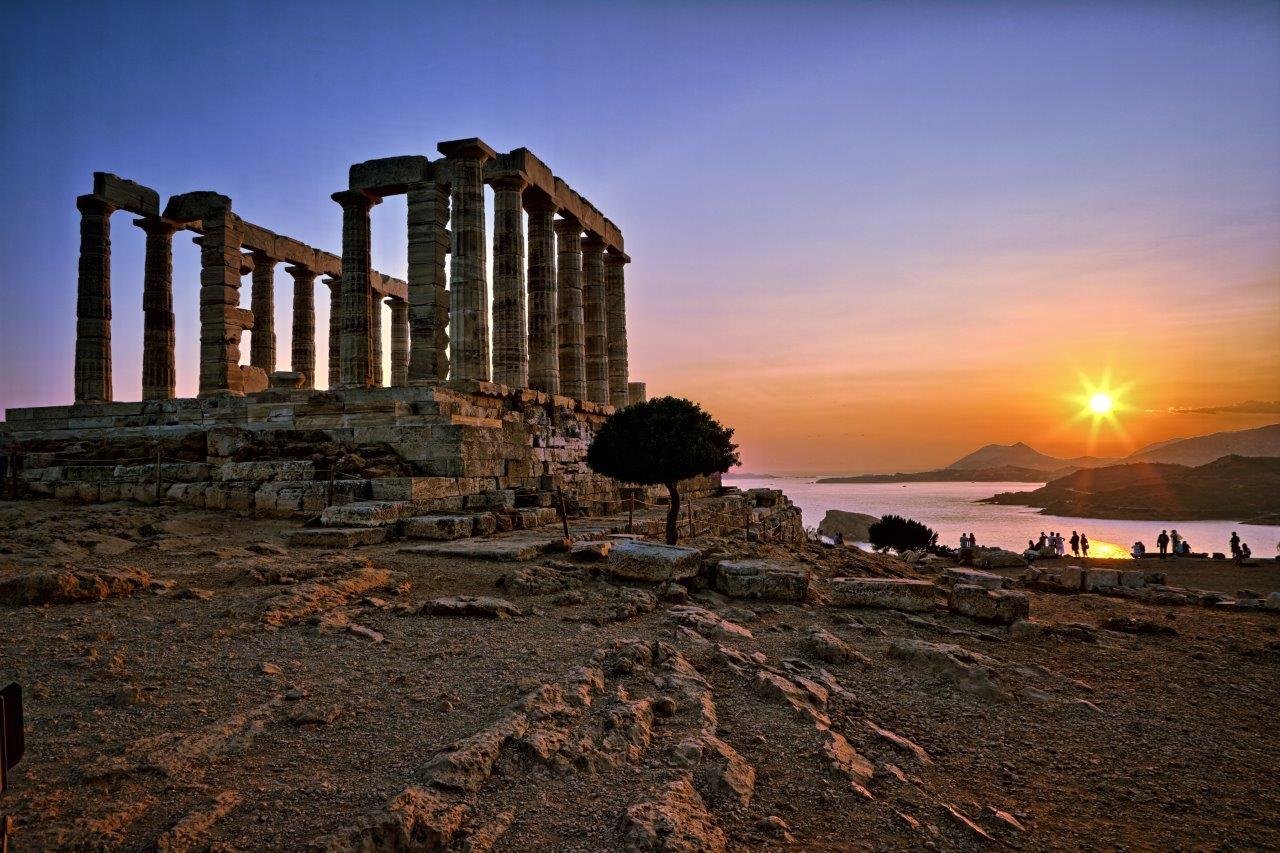Visit Olympia, Delphi and the incredible Meteora with official English speaking guide, on a luxury bus on a 4-day classic tour.
Things to do 3 days Classic Circuit from Athens
Highlights to see in 3 days Classic Circuit from Athens
Details
Duration
4 days
Language
Guide in Spanish and English
Price
Single (dates 22/9-29/10): 589.33 €
Double Room (Dates 22/9-29/10): 906.66 €
Triple (fechas 22/9-29/10): 1,359.99 €
Individual (Dates 1/11/21-31/3/22): 522.50 €
Double (Dates 1/11/21-31/3/22): 790.00 €
Triple (Dates 1/11/21-31/3/22): 1,185.00 €
Individual (dates 01/4-29/10/22): 589.33 €
Double (dates 01/4-29/10/22): 906.66 €
Triple (dates 01/4-29/10/22): 1,359.99 €
Niños de 4 a 11 años: 328.00 €
Availability and starting time
08:00 - Wednesday and Saturday
When to book?
You can reserve up to 48 hours before the activity
Free cancellation
Cancel free up to 3 days before the activity and receive a full refund.
Included
Pick up and drop off.
1-night accommodation in Olympia in 3*
1-night accommodation in Delphi in 3
1-night accommodation in Kalambaka in 3*
Official English-speaking tour guide.
Entrance fees to all the archaeological sites and museums.
Transport by luxury A/C bus.
24/7 Emergency phone line.
Half board.
1 Participación en Premios Mensuales:
Ver Premios
Excluded
Gratuities, personal expenses & municipality tax.
Entrance fee for children aged 4 to 12 years from non-EU countries.
Meeting point
Conditions
How to book?
Limited availability. Book as soon as possible to guarantee availability. Choose date and fill in the required fields. Secure and protected payment. You will immediately receive your booking confirmation.
Super safe route! COVID-19 efforts
Our route takes the recommendations and key considerations of security and protection against Coronavirus.
Is the interior of the monuments visited?
Exterior and interior of most named sites
Is the tour adapted for people with reduced mobility?
Almost fully adapted
Guaranteed departures without min of travelers
Not
Are animals allowed?
Not
Activity recommended for children?
Yes, families are welcome
Our promises
Best price guaranteed
Quick and easy reservation
Multilingual Customer Service
Secure payment
Contact us
Do you have any question?
Would you like this tour in private?
Reservation
Cancel or modify reservation


